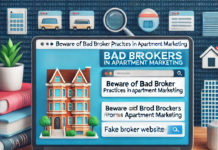In the e-commerce world, Google and Amazon focus on search and purchasing activity. Traditionally, Facebook focused on community. However, the times are changing as Facebook Shops enters the e-commerce competition. Additionally, Facebook aims at leveraging its communication platforms to potentially offer commerce over its messaging channels (like WhatsApp, Messenger and Instagram Direct).
Today we’re introducing Facebook Shops, which will make it easy for businesses to set up a single online store on both @facebookapp and @instagram, and soon @messenger and @WhatsApp too pic.twitter.com/bBloRGBFzP
— Facebook (@Facebook) May 19, 2020
In the announcement, Facebook CEO Mark Zuckerberg acknowledges the present difficulties many small businesses face during the current coronavirus pandemic. As the current health crisis continues evolving, Facebook maintains its commitment to small businesses that rely on its platform. For example, Facebook introduced a $100 million grant program.
“We know that your business may be experiencing disruptions resulting from the global outbreak of COVID-19. We’ve heard that a little financial support can go a long way, so we are offering $100M in cash grants and ad credits to help during this challenging time.”
As businesses and consumers learn more, Facebook Shops offers a reminder that small businesses contribute the majority of Facebook advertisers. As a result, Facebook and the small business community rely on each other to grow their respective companies.
What is Facebook Shops?
Facebook Shops is an online shopping marketplace. The feature provides an avenue for businesses to list products on various Facebook owned properties (including Facebook pages, Instagram profiles, Instagram Stories and even ads). In time, Facebook plans to enable commerce via chat (in which businesses can tag products and consumers can click to purchase the product).
Importantly, Facebook Shops launches as a free product, which reduces any risks small businesses face while testing the product. Therefore, companies must continue driving consumers to their Facebook page, which likely means relying on Ads. Zuckerberg alludes to advertising playing a role in the feature as well.
“Our business model here is ads, so rather than charge businesses for Shops, we know that if Shops are valuable for businesses they’re going to in general want to bid more for ads. We’ll eventually make money that way.”
Ultimately, time will tell how consumers adopt the shopping feature, but launching as a free product during a pandemic shows how much Facebook wants to support the underlying businesses that rely on the platform.
How does Facebook Shops differ from current Facebook options?
Facebook Shops expands the Marketplace place offering as it pushes commerce to the center of the platform. Prior to launching the new feature, the bulk of actual commerce occurred in Marketplace, which traditionally focused on person to person sales. Additionally, many businesses found ways to leverage Facebook to drive sales, mainly thru advertising. At this time, it appears that the new feature will not immediately change this channel.
Although Facebook allowed companies to individually list products, the new feature allows catalog uploads, which syncs across various apps. So, the biggest change (for now), streamlines the process of managing product lists. In time, Shops will offer more features that help streamline the complete purchasing process.
Finally, the purchase still occurs on the company’s site. However, as the shopping feature expands, Facebook aims to integrate e-commerce platforms such as Shopify, BigCommerce, WooCommerce, ChannelAdvisor, CedCommerce, Cafe24, Tienda Nube and Feedonomics to support the feature. As a result, purchasing directly thru Facebook should help increase sales as direct purchases removes additional steps in the customer journey. Zuckerberg notes the desire to create a simple process for consumers.
“It’s one simple and consistent experience across this family of apps, which means it is easier for people. That of course means there’ll be higher conversions and more sales for small businesses.”
How does Facebook Shops work for my business?
As Facebook Shops launches, most businesses won’t experience many changes. First and foremost, the feature is opt-in. But, as a free feature, any small business that sells products should certainly experiment with the shopping feature. Based on early information, purchases still primarily occur on a company’s site, so there is not a big difference in the customer journey. However, for companies that utilize Facebook’s virtual payments portal, consumers can make purchases directly from that option.
So, how does Facebook Shops work?
- Allows companies to choose and feature certain products.
- Customize the look and feel of the Facebook Shops tab, including images and accent colors.
- Facebook Shops available to consumers via their Facebook business page, Instagram profile, Instagram Stories and Ads.
- Leverage Facebook messaging apps to answer questions and offer customer support.
Instagram Introduces Programs That Help Influencers
Although Shops predominately support merchants selling products, Facebook and Instagram also introduced some programs aimed at influencers. For example, Instagram Shop allows consumers to purchase products seen in the Explore tab. As a result of the Instagram Shop feature, influencers now have the ability to drive sales directly from livestreams.
Along those lines, Instagram is opening up the Facebook Brand Collabs Manager to a “select” group of influencers. Within this feature, influencers can share insights about engagement and demographics that ideally help match them with brands to create a mutually beneficial relationship. The Verge shares why this is a potential game changer for influencers.
“This could be a monumental change to how the influencer system works on Instagram. Up until now, many influencers sent screenshots of their metrics to partners or gave a third-party app access to their account so the brands could check the metrics on their own. Now, creators included in this program can “source new deals, manage partnerships, and automatically share insights with them,” all from within Facebook’s own tool.”
But, Instagram also introduced additional programs (currently in the test phase) aimed at helping influencers earn money directly through the platform. Previously, influencers negotiated sponsorship agreements directly with brands in order to earn money. Now, as part of their response to coronavirus pandemic impacting advertising, Instagram will test revenue generating products.
-
Instagram Badges
Following the Patreon model, Instagram launched Badges that allow fans to support their favorite influencers with a “heart” badge. The badges allow fans to stand out when they comment so influencers can spot their die-hard fans.
“Once purchased, the badges will appear next to the person’s name throughout the live video as they comment, which helps them stand out. This helps creators more quickly see which fans are supporting their efforts and give them a shout-out, if desired, or respond to their questions. In addition, creators will be able to see a list of all their badge holders.”
-
IGTV Ads
Another revenue model that aligns Instagram with other platforms is the launch of IGTV ads. Similar to YouTube vloggers, influencers will receive a portion of the ad revenue for views that occur within their feed.
“IGTV ads will be tested initially with a small group of creators and advertisers, including Sephora and Puma, in the U.S. It will slowly expand access to ads over time. The company says at least 55% of the revenue from advertising will go to the creator.”
How does Facebook Shops stack up to the competition?
In the very competitive world of e-commerce, Facebook Shops differentiates from the crowd by owning the consumer journey. For example, companies generally must “pay to play” on Google and Amazon in order to drive sales. However, small businesses that currently manage and maintain a successful social media channel can easily integrate Facebook Shops into their messaging. As a result, consumer adoption should follow.
Additionally, as Facebook focuses on community, integrating commerce engines helps keep consumers within the Facebook world. Tobias Lutke, Shopify CEO, notes the importance of integrating sales directly with the platform.
“Small businesses need a way to find new buyers. This is going to be an incredibly powerful new reality for everyone in the retail space to have these powerful tools natively on the Facebook platform. We hope these tools can relieve some of the pressure small businesses are facing right now and help businesses of all sizes prepare for the future.”
Although Google Shopping offers free and paid product listings, consumers must still click to the company site in order to make the purchase. In the Amazon world, purchases occur directly on the platform, but companies “do not own” the consumer. With Facebook Shops, companies have the option to own the customer journey and reduce a step in the sales journey.
As always, creating an authentic voice helps generate the most loyal consumers. New features (free or paid) from any platform will not replace the best digital marketing practices that drive awareness and long-term consumers that join your tribe.





